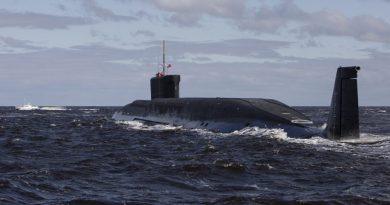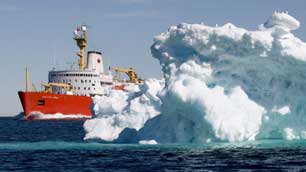Arctic Circle gathering boosts cooperation across the circumpolar world
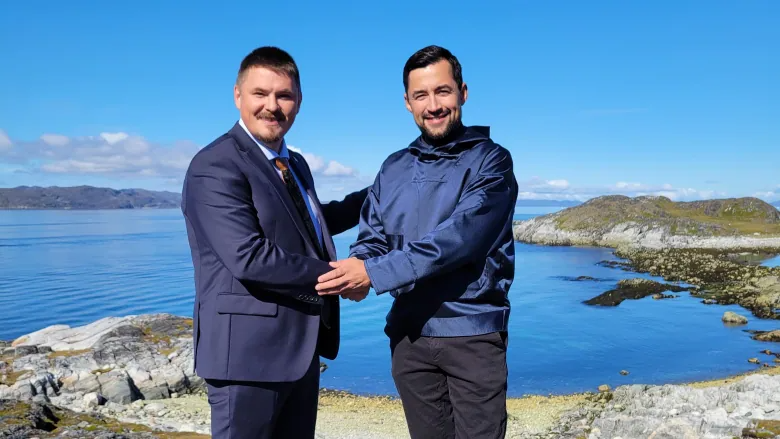
‘It’s very important to have a unified voice,’ says Nunavut Premier P.J. Akeeagok
Canada’s three territorial premiers reinforced their solidarity at the Arctic Circle Greenland Forum which drew leaders from across the circumpolar world and beyond to Nuuk, Aug. 27 to Aug. 29.
“The North is often seen with such a small population base versus the southern Canadian cities or jurisdictions,” said Nunavut Premier P.J. Akeeagok.
“But we are mighty in terms of our landmass, of our people, of our culture, of our languages and as such it’s very important to have a unified voice.”
Akeeagok, along with Sandy Silver, premier of Yukon, and Caroline Cochrane, premier of the Northwest Territories, issued a joint statement Monday, saying, “It was an honour to be invited to the Arctic Circle Forum and attend in-person to continue a global dialogue about the North.”
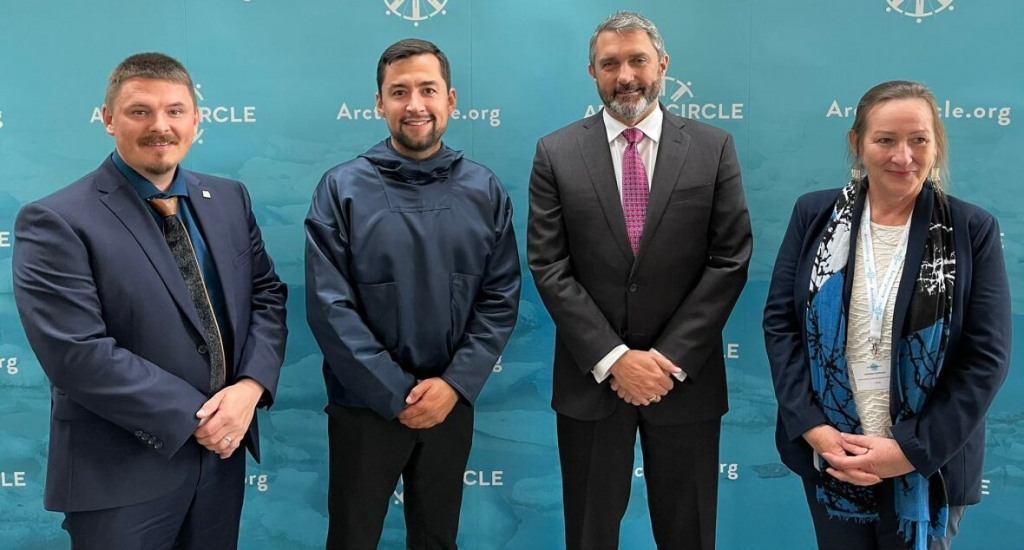
“The importance of international cooperation and partnership on a range of issues is clear,” the statement reads. “From security to creating healthier lives and economic opportunities for our people, the conversations that lead to a peaceful and more sustainable future must continue.”
To that end, while in Nuuk, Akeeagok signed a memorandum of understanding with Greenland.
“There’s an artificial border between our jurisdictions when the relationship and really the connection we have between our countries is so rich and … so deep,” Akeeagok said.
The same message came from Greenland Prime Minister Múte B. Egede in a Greenlandic government news release.
“We live in a globalized world where the focus is on the Inuit and the Arctic. We have a lot in common and we already have a good and solid friendship with Nunavut. This agreement will move us even closer to the future,” Egede said.
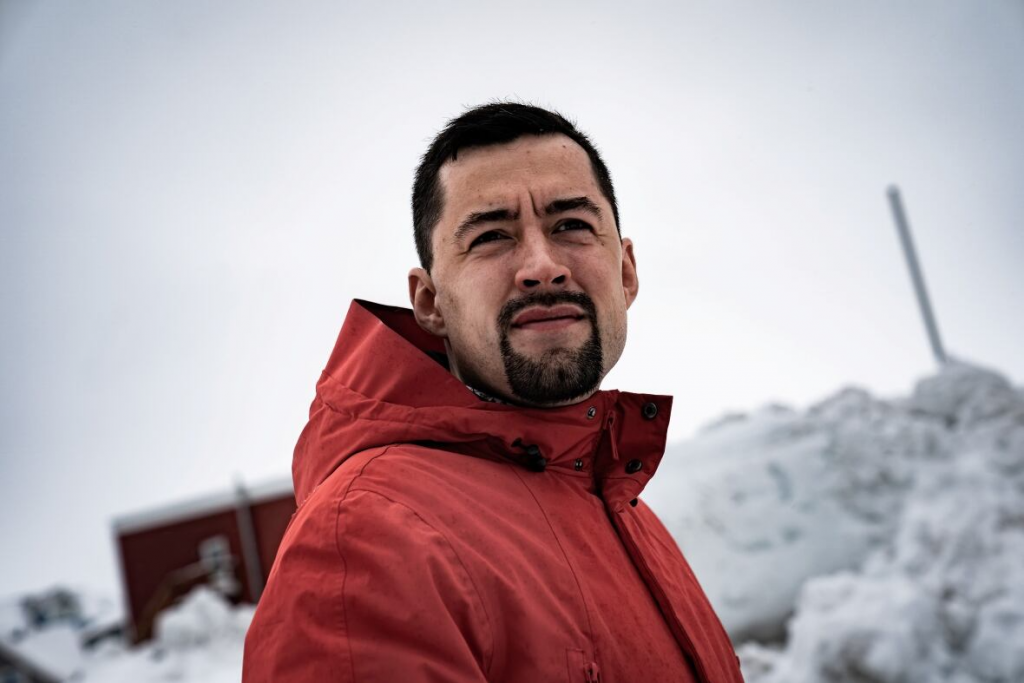
An update of an earlier agreement from 2000, this memorandum goes further in forging new links between Nunavut and its closest neighbour, which could include possible cooperation on green energy and deep-sea ports.
The two governments also vowed to see increased mobility between Nunavut and Greenland and to explore the possibility of resuming direct flight connections — although previous efforts have not been successful.
“Though geographically close, moving between Nunavut and Greenland is increasingly challenging,” reads the agreement.
The agreement cites the lack of flights, high costs, and the requirements of cross-border travel as deterrents to travel.
“The Governments of Nunavut and Greenland will seek to secure increased mobility between Nunavut and Greenland, with minimal interference and regulation.”
Both Greenland and Nunavut have invested in new airports, which may facilitate new opportunities for commercial, cultural, institutional and other exchanges, the memorandum said.
An exchange of ideas
Hundreds attended the Arctic Circle Greenland forum held in the Katuaq conference centre in downtown Nuuk.
Arctic Circle — founded in 2013 by former President of Iceland Ólafur Ragnar Grímsson, Kuupik Kleist, Greenland’s prime minister from 2009 and 2013, and other partners — aims to improve dialogue among political and business leaders, environmental experts, scientists, Indigenous representatives, and other international stakeholders.
As part of its mission, Arctic Circle says it wants to “support, complement and extend the reach of the work of the Arctic Council by facilitating a broad exchange of ideas and information.”
But since the Ukraine invasion, the work of the Arctic Council, an intergovernmental body established in 1996, has stalled, with seven of the eight member circumpolar countries suspending all council-related work indefinitely.
Arctic security top of mind
During the gathering, regional security, a subject that is off limits at Arctic Council meetings, was on the radar.
The United States Secretary of State and delegation leader, Douglas Jones, said at the meeting that the U.S., which recently appointed an ambassador-at-large for the Arctic, would be the guarantor of security in the Arctic, according to Greenland’s Sermitsiaq newspaper.
Meeting topics included discussions of minerals and mining, cleaner shipping, Inuit women in the age of climate change and improved telecommunications.
Madeleine Redfern of Iqaluit, the chief operating officer of CanArctic Inuit Networks, which wants to see a subsea fibreoptic cable from Newfoundland to Iqaluit, said, “We need a roadmap, an infrastructure strategy so funding can be secured in the Arctic.”
Akeeagok called his visit to Greenland an “eye opener.”
“Seeing the deep-sea port and the vibrancy of the fisheries economy, there was something obviously that really sparked my interest,” he said, not to mention “the incredible infrastructure and the housing that they’re building.”
Related stories from around the North:
Canada: Direct flight between Canada and Greenland could strengthen cultural, language ties, CBC News
Greenland: Forum to highlight Greenland’s growing importance on world stage:Grimsson, Eye on the Arctic
Russia: Amid war, sanctions, Moscow says Russian Arctic shipping will thrive, The Independent Barents Observer
United Kingdom: Greenland and U.K. launch free trade agreement negotiations, Eye on the Arctic
United States: The US is using a mine in Greenland to counter China, Blog by Mia Bennett

